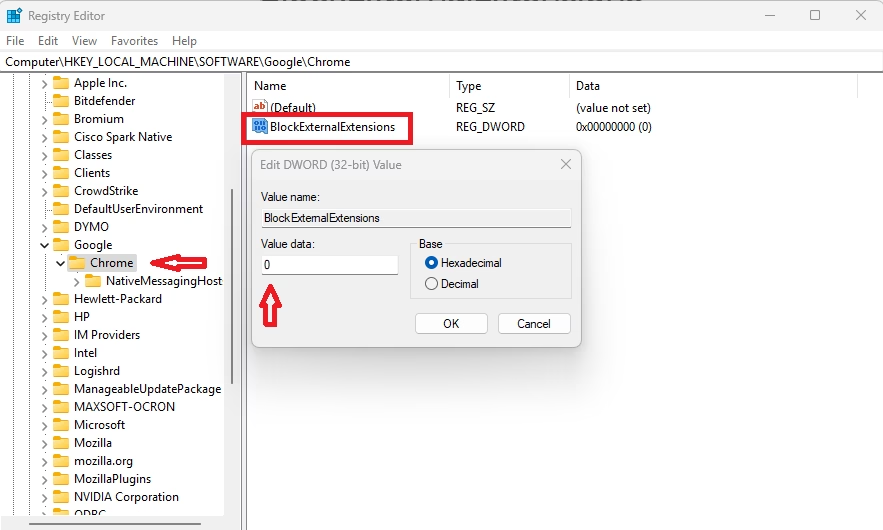This article explains how to block external extensions in Google Chrome.
Google Chrome is a web browser developed by Google that runs on multiple platforms. It shares the same codebase as Microsoft Edge, making the two browsers nearly identical in their basic functionalities.
If you want to enhance the security of your device, consider blocking external extensions in the Google Chrome browser. Several security vulnerabilities have been identified in third-party Google Chrome extensions.
In the Google Chrome browser, you can use the BlockExternalExtensions policy to block external extensions from being installed on your device.
Block external extensions in Chrome
As mentioned, you can use the BlockExternalExtensions policy to block external extensions from being installed on their devices.
Here’s how to do that.
First, open the Windows Registry and navigate to the folder key path below.
Remember to back up your registry before making any changes, or create a System Restore point as a precaution.
Computer\HKEY_LOCAL_MACHINE\SOFTWARE\Google\Chrome
In the registry key paths, if you do not see Google, right-click on the Policies key and create a new key named Google. Do the same for Chrome if it is not listed.
Once there, right-click Chrome > New > DWORD (32-bit) Value and name the new DWORD BlockExternalExtensions.
Double-click and open the BlockExternalExtensions name and set the value using the table below:
0= Default – Allow users to install external extensions.1= Block external extensions from being installed.

Delete the “BlockExternalExtensions” name created above to restore the default behavior in Chrome.
BlockExternalExtensions
You may have to reboot your computer to apply the changes.
That should do it!
Reference:
Conclusion:
In summary, blocking external extensions in Google Chrome is useful in enhancing your device’s security. Here are the key takeaways:
- Using the BlockExternalExtensions policy helps prevent the installation of potentially harmful extensions.
- Modifying the Windows Registry is necessary to implement this policy; ensure you back up your registry before making changes.
- After updating the registry, a system reboot may be required to activate the new settings.
- Always stay informed about the security implications of third-party extensions in your web browser.
- Regularly review and update your browser settings to maintain optimal security.
By following these steps, you can protect your device from the risks associated with third-party extensions.




Leave a Reply Cancel reply